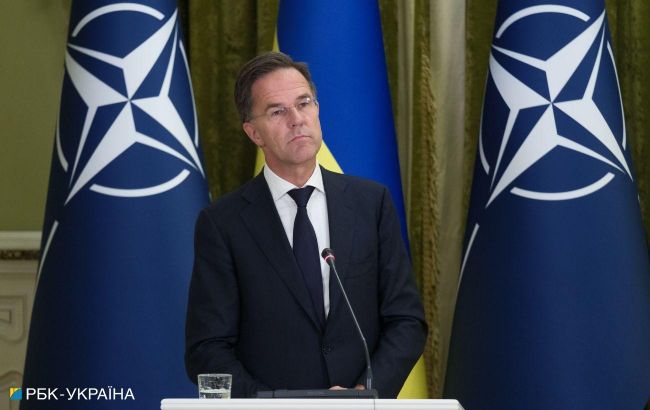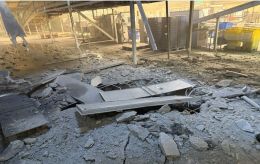NATO Secretary General calls on allies to increase arms supplies to Ukraine
 Photo: NATO Secretary General Mark Rutte (Vitalii Nosach RBC-Ukraine)
Photo: NATO Secretary General Mark Rutte (Vitalii Nosach RBC-Ukraine)
NATO member states will produce more weapons and ammunition. The alliance is close to reaching its €40 billion spending target for Ukraine this year, NATO Secretary General Mark Rutte says.
The new secretary general of the North Atlantic Treaty Organization has called for a focus on increasing defense production, including equipment for land, air, and sea, as well as missiles. At the same time, NATO intends to fulfill its spending promise by allocating €20.9 billion in the first half of the year, he said.
“We need to move further and faster to meet the growing threats we face,” Rutte told reporters in Brussels ahead of the first meeting of NATO defense ministers of his tenure.
NATO's assistance to Ukraine
NATO defense chiefs are expected to follow up on the agreement of the alliance's July summit in Washington, DC, where they pledged €40 billion in aid for this year. This pledge fell short of Rutte's predecessor, Jens Stoltenberg, attempts to secure a solid multi-year funding structure that would provide guaranteed funding for the foreseeable future.
Since taking the reins earlier this month, the former Dutch Prime Minister has focused on the need for the alliance to increase investment in the defense industry.
“We have made significant advances over the past two years on the production of munitions and the manufacturing of new ships, combat vehicles and jets,” Rutte said. “But we are still not producing enough — and the costs remain too high.”
As more and more member states meet NATO's commitment to spend 2% of output on defense since the start of the war in Russia - a goal that has often escaped attention over the past decade - Rutte also called for more spending to be prepared for future conflict.
In Brussels, the defense ministers will discuss a new command center in Wiesbaden, Germany, to coordinate aid and training for Ukraine. The alliance will also focus on working with industry to improve standardization as a way to unify NATO armies and improve procurement practices, according to the official, who spoke on condition of anonymity.
The allies will also address gaps in NATO's air defense system. The alliance has had to respond to the situation on its eastern flank, where there have been several violations of its airspace by Russian drones in recent weeks.
Coordinated efforts have helped NATO meet its schedule to produce 2 million 155mm artillery rounds this year. Kyiv's chronic ammunition shortages have contributed to Russia's grueling advance in eastern Ukraine this year.
Rutte said on October 16 that NATO should “scale up together to produce more and at lower the cost.”
Ukraine's President Volodymyr Zelenskyy is heading to Brussels to attend the EU leaders' summit and a meeting of NATO defense chiefs. He is to present his five-point victory plan and a secret part

